LITHIUM - ORAL
PHONETIC PRONUNCIATION: (LITH-ee-um)
COMMON BRAND NAME(S): Eskalith
GENERIC NAME(S): lithium carbonate
Uses
USES: This medication is used to treat manic-depressive disorder (bipolar disorder). It works to stabilize the mood and reduce extremes in behavior by restoring the balance of certain natural substances (neurotransmitters) in the brain. Some of the benefits of continued use of this medication include decreasing how often manic episodes occur and decreasing the symptoms of manic episodes, such as exaggerated feelings of well-being, feelings that others wish to harm you, irritability, anxiousness, rapid/loud speech, and aggressive/hostile behaviors.
How to use LITHIUM - ORAL
HOW TO USE: There are different brands and forms of this medication available. They may not have the same effects. Do not change brands or forms without asking your doctor or pharmacist. Take this medication by mouth as directed by your doctor, usually 3-4 times daily. Take lithium with or immediately after meals to lessen stomach upset. Drink 8 to 12 glasses (8 ounces or 240 milliliters each) of water or other fluid each day, and eat a healthy diet with normal amounts of salt (sodium) as directed by your doctor or dietician while taking this medication. Large changes in the amount of salt in your diet may change your lithium blood levels. Do not change the amount of salt in your diet unless your doctor tells you to do so. The dosage is based on your medical condition, lithium blood levels, and response to treatment. This medication works best if the amount of the drug in your body is kept at a constant level. Therefore, take this drug at evenly spaced intervals. Use this medication regularly to get the most benefit from it. To help you remember, take it at the same times each day. If you are using the liquid form of this medication, carefully measure the dose using a special measuring device/spoon. Do not use a household spoon because you may not get the correct dose. This medication must be taken exactly as prescribed. It is important to continue taking this medication even if you feel well. Do not stop taking this drug without consulting your doctor. Some conditions may become worse when this drug is suddenly stopped. Consult your doctor or pharmacist for more details. Tell your doctor if your condition does not improve or if it worsens. It may take 1 to 3 weeks to notice improvement in your condition.
Side Effects
Precautions
Interactions
Overdose
Images
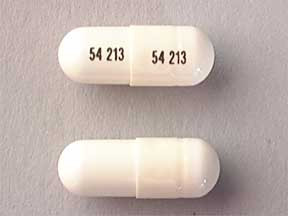
- color
- white
- shape
- oblong
- imprint
- 54 213, 54 213
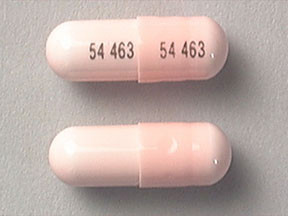
- color
- peach
- shape
- oblong
- imprint
- 54 463, 54 463

- color
- peach
- shape
- oblong
- imprint
- 54 463, 54 463
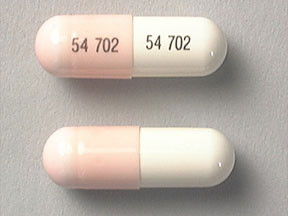
- color
- peach
- shape
- oblong
- imprint
- 54 702, 54 702

- color
- white
- shape
- oblong
- imprint
- 54 213, 54 213

- color
- peach
- shape
- oblong
- imprint
- 54 463, 54 463
Reviews
Faq for LITHIUM - ORAL
Lithium oral is a medication used to treat bipolar disorder, a mental health condition characterized by extreme mood swings.
The exact mechanism of action is not known, but lithium is believed to help stabilize mood by affecting the balance of certain chemicals in the brain.
Common side effects include increased thirst, increased urination, dry mouth, mild trembling, weight gain, and mild nausea.
It may take several weeks for lithium to start working effectively. It is important to continue taking the medication as prescribed, even if you do not notice immediate improvement.
Lithium oral is primarily used for bipolar disorder, but it may also be prescribed for other conditions such as major depressive disorder and schizophrenia.
It is generally not recommended to take lithium oral during pregnancy, as it may be harmful to the unborn baby. However, the decision should be made in consultation with a healthcare provider.
If you miss a dose, take it as soon as you remember. If it is close to the time for your next dose, skip the missed dose and continue with your regular dosing schedule. Do not take a double dose to make up for a missed one.
It is important to avoid excessive amounts of caffeine or any other stimulant while taking lithium, as they may worsen side effects. Additionally, certain medications, such as diuretics and nonsteroidal anti-inflammatory drugs (NSAIDs), can interact with lithium and should be avoided or used with caution.
Regular blood tests are needed to monitor lithium levels in the blood, as the medication has a narrow therapeutic range. This is important to ensure it remains effective and to prevent toxicity.
Warning
WARNING: It is very important to have the right amount of lithium in your body. Too much lithium may lead to unwanted effects such as nausea, diarrhea, shaking of the hands, dizziness, twitching, seizures, slurred speech, confusion, or increase in the amount of urine. Tell your doctor right away if these effects occur. There is only a small difference between the correct amount of lithium and too much lithium. Therefore, it is important that your doctor monitor you closely during treatment. Keep all medical and laboratory appointments while you are taking lithium.
Disclaimer
IMPORTANT: HOW TO USE THIS INFORMATION: This is a summary and does NOT have all possible information about this product. This information does not assure that this product is safe, effective, or appropriate for you. This information is not individual medical advice and does not substitute for the advice of your health care professional. Always ask your health care professional for complete information about this product and your specific health needs.
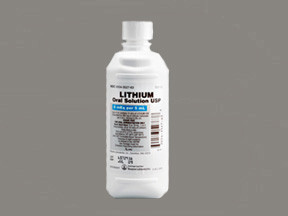
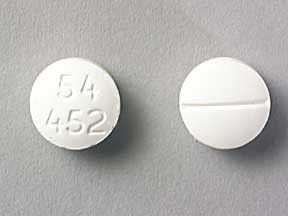
No Reviews Yet